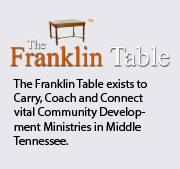Jesus said prayer was important. It’s actually an essential part of our relationship with God. Read what Jesus said to His disciples in Matthew 26:40. And He came unto the disciples and found them asleep, and said unto Peter, “What, could ye not watch with Me one hour?”

Jesus actually said it should be possible for us to spend an hour in prayer. Have you ever spent one uninterrupted hour in prayer with God? No distractions, no interruptions… just you and God… in deep conversation.
Having a high-quality prayer relationship with God is possible. Possibly one of the biggest challenges is just knowing “what to talk about” during your prayer time. The Bible gives us answers to many elements of prayer so let’s take a look at some of them.
Here’s a 30 Minute Prayer Plan
*Over the next seven days, commit to spending 30 minutes each day in prayer by spending 5 minutes on each of these elements of prayer. Find a quiet place and enjoy some uninterrupted time with God.
1. Praise: Praise God for who He is.
Focus on His character and His traits as the one true God. God is worthy of our praise. To praise Him is not the same as thanking Him. Thanking Him focuses on what He has done for us but praising Him focuses on who He is. Praise Him for His glory, power, creation, holiness, righteousness, greatness and more.
Psalm 150:1-2, “Praise ye the Lord. Praise God in his sanctuary: praise him in the firmament of his power. Praise him for his mighty acts: praise him according to his excellent greatness.”
2. Thanksgiving: Thank Him for what He has done and is doing in your life.
To enter His gates with thanksgiving and praise is to enter into His sanctuary. His sanctuary is an illustration of His place of worship. When we come to Him in public or private worship we should come with a heart filled with thankfulness and our praise should overflow. Thank Him for all His blessings in your life. Thank Him for salvation, spiritual blessings, friends, family, health, provision, etc… Make a list of His blessings in your life and continually thank Him and praise Him.
Psalm 100:4, “Enter into his gates with thanksgiving, and into his courts with praise: be thankful unto him, and bless his name.”
3. Intercession: Pray for others and for their needs.
Part of the design of Christianity is this, Christians are praying people. And we don’t need written, formal prayers because when you have a personal relationship with Christ, you understand that you can fellowship with Him. We have the obligation to pray for all people. Supplications are prayers against evil happening to others, prayers are for God’s goodness and blessings, intercessions and thanksgiving are made for all the good that God has already provided. Take time to pray for others. Notice that He doesn’t instruct us to pray only for those who are just like us, but to pray for “all men” or all people. If we have the power to communicate with Him and receive answers, why would we not pray for everyone?
I Timothy 2:1, “I exhort therefore, that, first of all, supplications, prayers, intercessions, and giving of thanks, be made for all men.”
4. Supplication: Pray for your own needs asking Him to meet those needs.
Instead of worrying, pray. Christians are supposed to live without care. Matthew 6:25 tells us to “take no thought for our life.” To live without care is to understand and practice the habit of trusting God with past and current troubles, wrongdoings, struggles, trials, and pain.
If I live in an anxious state of mind about all the difficulties I’ve faced in life, my mind will become filled with emotions that fuel a distrust for God. But God gives the antidote for worry when He says, “but in everything pray.”
Not only should Christians pray at specific times, but we should also pray spontaneously as an antidote to worry. Every time you begin to stress about something, pause and pray, asking God to take that burden and stress away and complete the prayer by thanking Him for all He has already done in your life.
When you turn stress into reliance on God and counteract it with gratitude for His blessings, you foster a completely different mindset that leads to more trust in God and more expectation of His future care and blessings on your life.
Philippians 4:6, “Be careful for nothing; but in every thing by prayer and supplication with thanksgiving let your requests be made known unto God.
5. Confession: Confess your sins and ask Him for forgiveness.
Christians are in the family of God. The family of God is a family of sinners. If you don’t admit this is true, you are deceiving yourself! (His words, not mine. =) Let’s establish this fact once and for all. Just because a person is a Christian, that does not make them sinless. But many Christ followers live as if they don’t need to acknowledge their sins.
Take time regularly to confess your sins to God. He waits and desires this moment with you. He promises when you confess your sin, He will faithfully forgive you of those sins and cleanse your heart. The anguish, pain, guilt, and lack of peace with God will go away with each moment you take time to receive His forgiveness. When you pray, include confession and experience joy.
I John 1:9, “If we confess our sins, he is faithful and just to forgive us our sins, and to cleanse us from all unrighteousness.”
6. Listening: Sit quietly. Listen to His voice after asking Him to speak to you.
Sometimes God’s children may feel discouraged but don’t feel dejected. Know how to be still, be calm, and rest in the assurance that God is on the throne and He has declared that His plans will be done. He is God over all. Take all those worries and anxieties and process them by surrendering all of it to the will of God, trusting in His power to overcome. Be still, sit quietly, listen to His voice and embrace the peace that passes all understanding that only He can provide.
Psalm 46:10, “Be still, and know that I am God: I will be exalted among the heathen, I will be exalted in the earth.”
“Satan dreads nothing but prayer. His one concern is to keep the saints from praying. He fears nothing from prayerless studies, prayerless work, prayerless religion. He laughs at our toil, he mocks our wisdom, but he trembles when we pray.” Samuel Chadwick, Author of The Path of Prayer.







